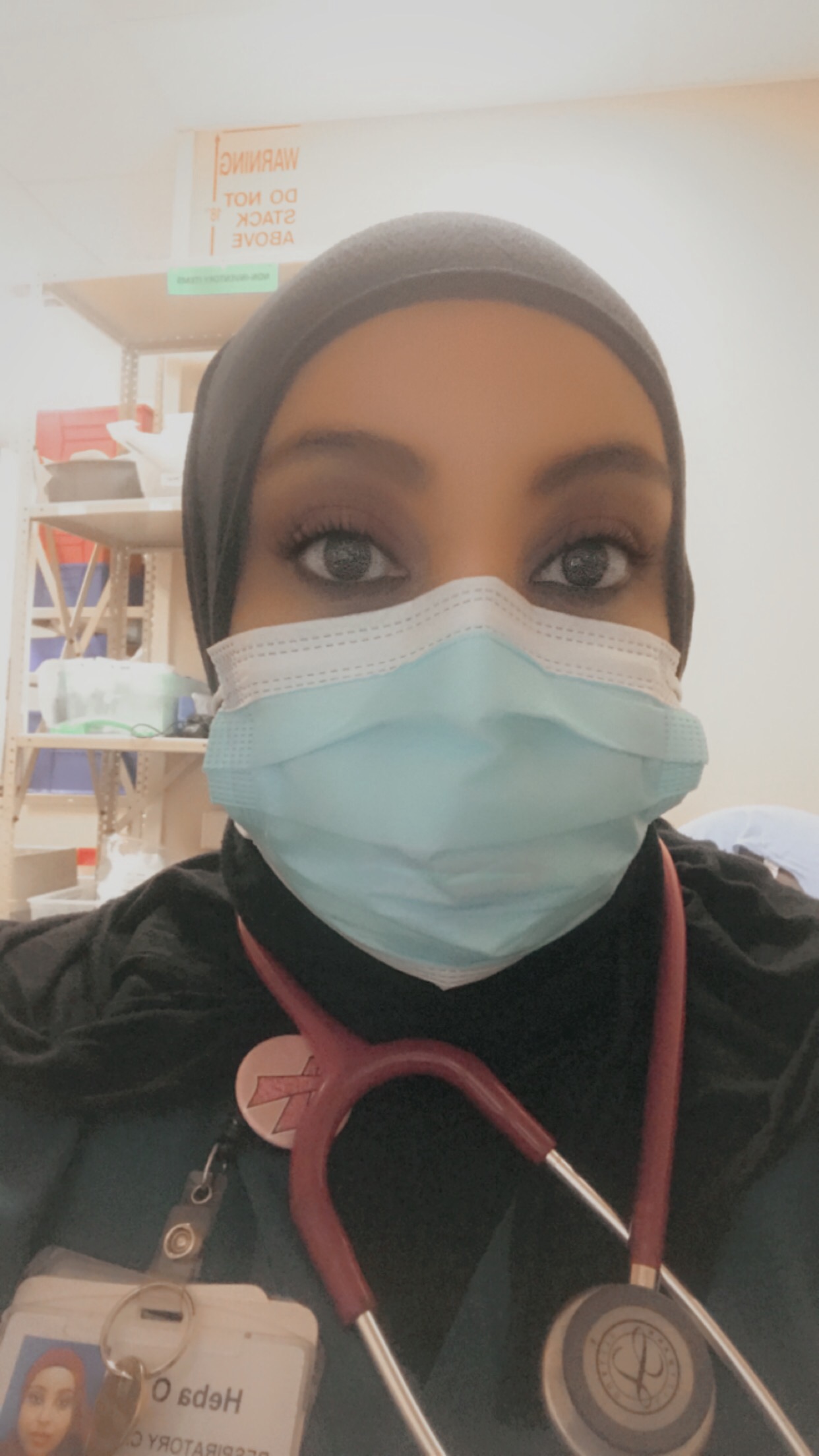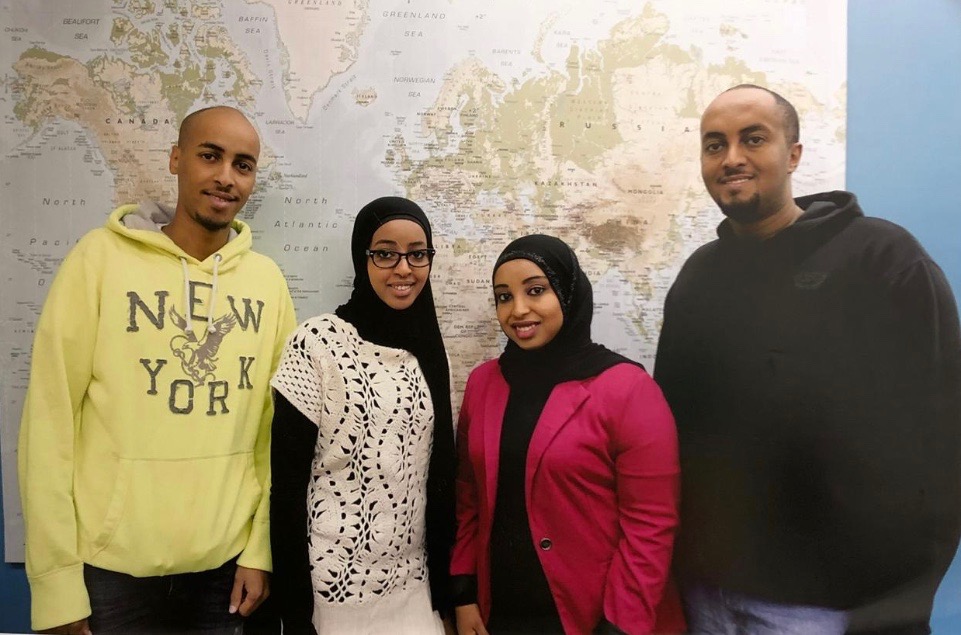Heba’s Story
Heba’s parents fled violence in Somalia before she was born. She was raised in Kuwait along with her two brothers and sister who were educated and worked in Kuwait before coming to the United States. Heba studied to become a nurse. Yet, like many stateless people, Heba’s family worried that at any moment, their host country might withdraw its protection. “Every year in Kuwait you have to renew your residency, so any day they can decide to send you back to Somalia,” Heba explained.
Heba and her siblings worried that due to their mother not working in Kuwait, she would be sent back to Somalia even after living in Kuwait for more than 30 years. Her family applied to the United Nations High Commissioner for Refugees for permanent resettlement in the United States and it was granted one year later. “One year was really quick for us. We expected that it would take three to five years but it only took one,” she said.
“People dream to come here and completely change their future. In Kuwait, we also had education and employment opportunities, but the United States has given us freedom in citizenship.”
Within her first 3 months of being resettled by Exodus, Heba enrolled at Ivy Tech Community College to continue her education. “I was very nervous when starting school, but Exodus made all my worries go away. They taught us how to do everything.” A Welcome Team from St. Peter’s United Church of Christ also provided friendship and support to Heba and her family that helped her feel like Indianapolis was home. Five years later, Heba and her family still have a strong bond with them that continues to live on. “They came to my graduation. We see each other every month when our families come together.”

Currently, Heba works as a respiratory therapist helping patients impacted by the coronavirus. Even though essential workers can choose to take time off, Heba sees a critical need for health care specialists and therapists and wants to fill that need. “I work seven days a week. It is really scary because you have to protect yourself all the time, but I want to help even though it is optional. It has been really difficult to work in the intensive care units and emergency rooms, especially because it is a completely unprecedented situation and no one knows how long it will last.” Heba plans to continue her education and stay in the medical field. “I want to continue studying and become a Pulmonologist and help my family,” she said.
Heba’s selflessness during the pandemic also meant giving up a special moment taking her oath of citizenship alongside her fellow new Americans. “They asked me if I had had contact with a coronavirus patient, and when I said yes they wouldn’t let me into the oath ceremony, so I did mine outside by myself,” she explained. “I understand. I don’t want to spread it to anyone else.” Despite this set-back, Heba is overjoyed to be an American citizen and to call Indiana home. “It really makes me happy. It makes it feel fair because everyone is equal,” she said.
When asked about what she wishes to tell people in the United States about refugees, Heba said she wants people to know refugees have hopes and dreams too. “People dream to come here and completely change their future. In Kuwait, we also had education and employment opportunities, but the United States has given us freedom in citizenship.” Heba and her family wish to visit Kuwait soon. “We love Kuwait so much, it is the place we were born,” she said.


